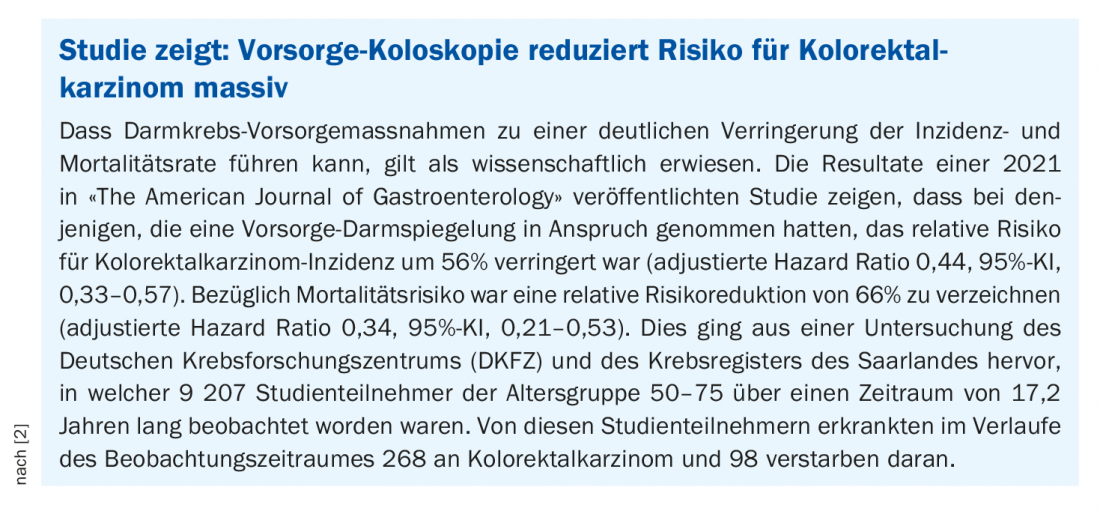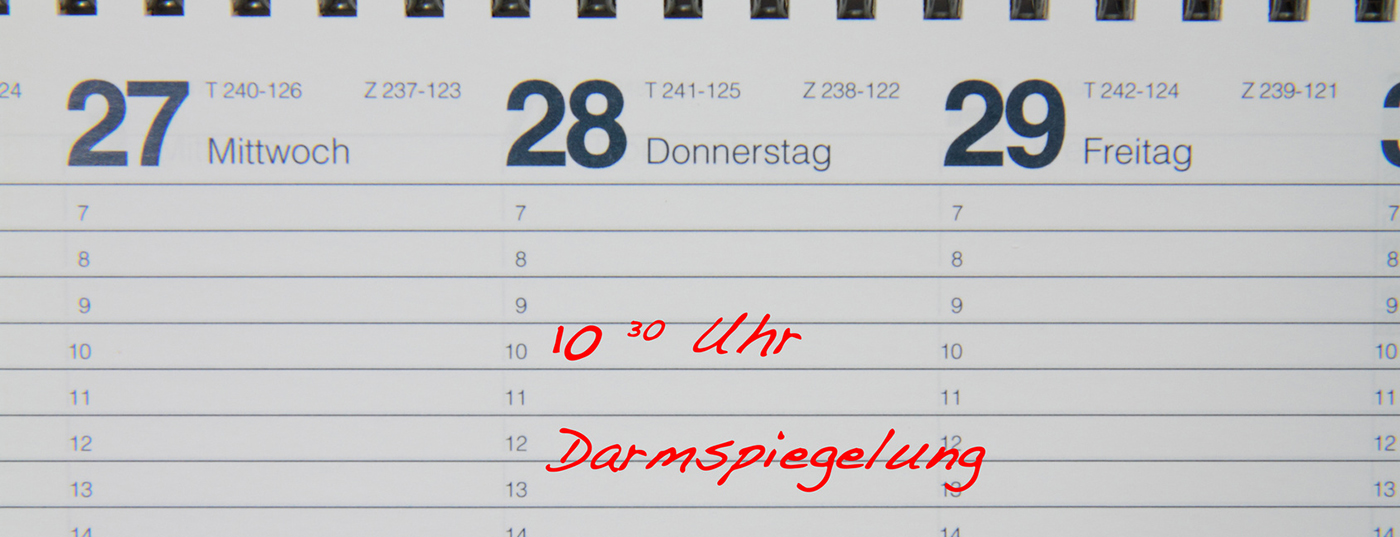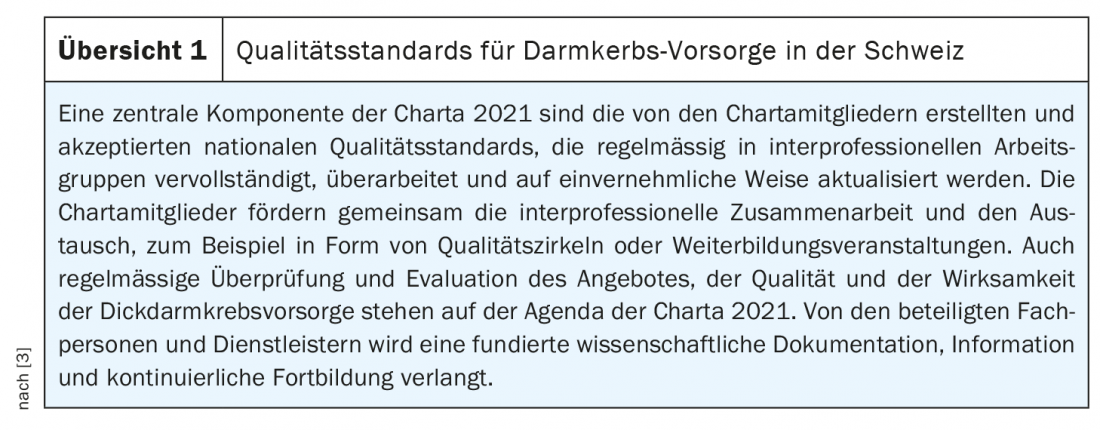The Swiss Cancer League recommends regular colorectal cancer screening examinations from the age of 50. It is scientifically proven that screening colonoscopy is associated with a reduction in incidence and mortality rates. The interprofessional Charter 2021 advocates for facilitated access to colorectal cancer screening programs in Switzerland.
About 5% of the Swiss population develops colorectal cancer during their lifetime and 1700 people die from it every year [1]. Early detection through colorectal cancer screening increases the chances of cure and reduces the risk of polyps developing into cancerous changes. During a colonoscopy, a targeted search is made for polyps, which can then be removed.
In a study with the participation of the German Cancer Research Center, it was shown that screening colonoscopy can contribute to a massive reduction in the incidence and mortality of colorectal cancer(box) [2]. Quality-certified colorectal cancer screening programs exist in some Swiss cantons, and corresponding projects are underway in other cantons. However, less than half of the target population still has access to colon cancer screening. Reasons for this include deficiencies in statewide coordination among service providers and key stakeholders, as well as impeded access to preventive measures due to political hurdles. In addition, information material is often underutilized and sometimes not tailored to the specific target groups. Uniform and balanced information on the advantages and disadvantages of the various measures for colorectal cancer screening should be prepared in a manner appropriate to the target group and provide a basis for a personal decision on participation in screening measures [3].

Facilitated access to quality-certified colorectal cancer screening.
The 2021 update of the national charter on interprofessional collaboration launched in 2017 by the Swiss Society of Pathology (SGPath) establishes principles and common goals for colorectal cancer screening [3]. A key concern is to facilitate access to efficient and quality-controlled colorectal cancer screening and to promote organized programs (overview 1) . In doing so, an interface function is performed to achieve the following:
- Improve interprofessional collaboration between the stakeholders involved.
- Standardization of information material and quality criteria
- Expansion of the range of high-quality preventive measures
- Promoting the development of (inter-) cantonal programs
The professional associations that sign this charter actively participate in the implementation of the guidelines set forth and respect them in their daily professional practice.
Improvement of the health policy framework
Another important concern is the reduction of financial hurdles. The Charter advocates for a nationwide expansion of organized, franchise-exempt programs so that participation is possible regardless of an individual’s financial situation [3]. Within the framework of organized, quality-assured programs for colorectal cancer screening, the services of all service providers are to be provided through mandatory health insurance and at uniform rates.
Another goal is to increase the age limit from 69 to 74 years for the assumption of the costs of colonoscopy, respectively the blood-in-stool test by the compulsory health insurance. Similarly, the exemption of franchises under organized programs up to the age of 74 should also be enshrined in law.
Literature:
- Krebsliga Schweiz: Colorectal Cancer Screening Program, www.krebsliga.ch/krebs-vorbeugen (last accessed 01.06.2021)
- Guo F, et al: Strong Reduction of Colorectal Cancer Incidence and Mortality After Screening Colonoscopy: Prospective Cohort Study From Germany. The American Journal of Gastroenterology 2021; 116 (5): 967-975.
- CHARTA 2021: https://crc-charta.ch (last accessed 01.06.2021)
HAUSARZT PRAXIS 2021; 16(6): 20
InFo ONCOLOGY & HEMATOLOGY 2021; 9(4): 43.












